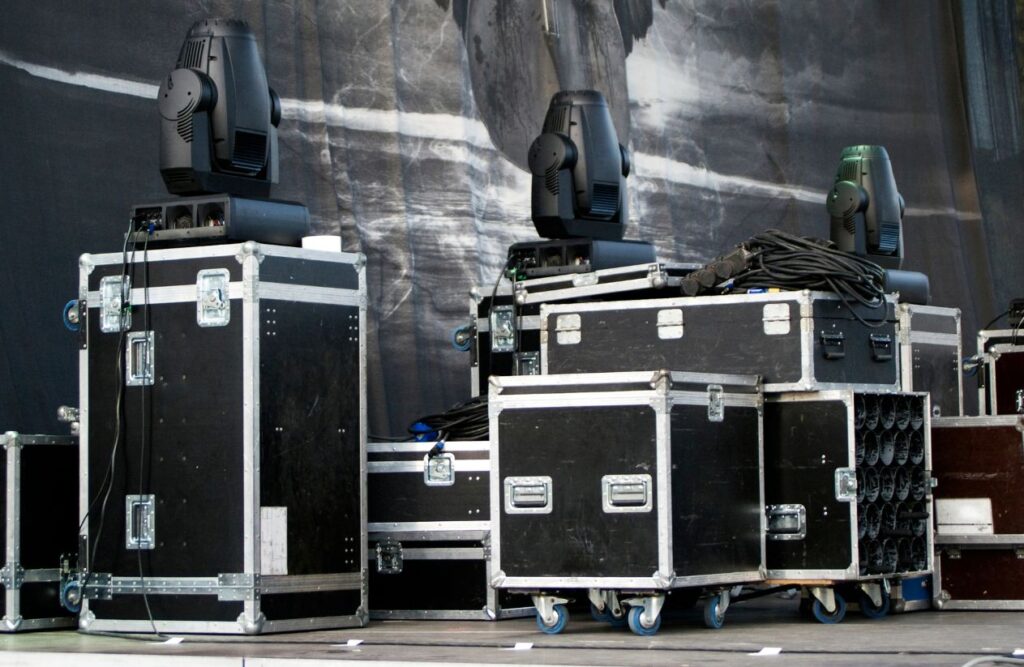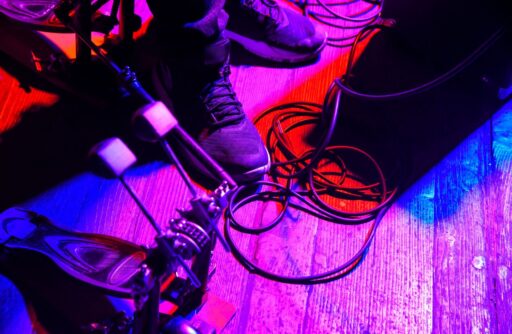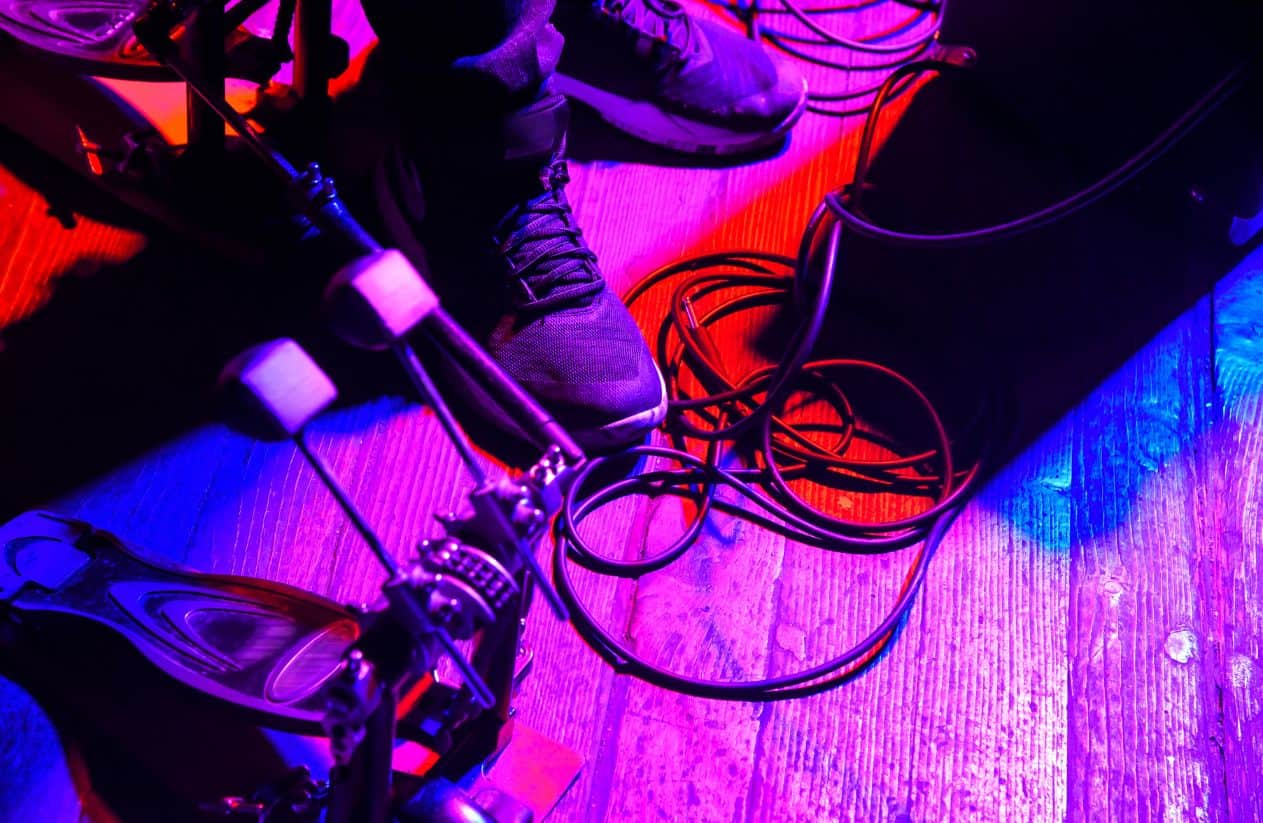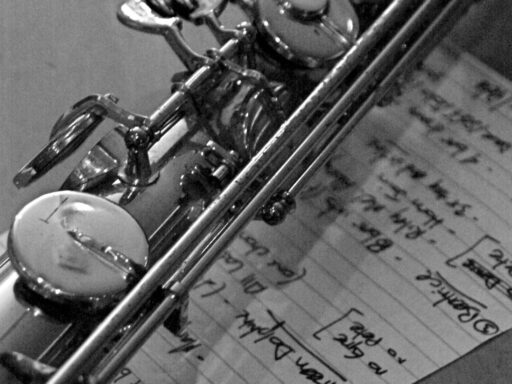Okay, so, my ‘first gig’? It was less ‘rockstar moment’ and more ‘what-did-I-just-step-in?’ I was crammed into this tiny cafe, mic feedback screeching, and my hands were shaking so bad, I almost dropped my pick.
I swear, the only people clapping were my mom and her friend. Sound familiar? We’ve all had those ‘learning experiences,’ right? This music thing… it’s not all sunshine and sold-out stadiums. It’s late nights, weird gigs, and constant hustle.
You pour your soul into your songs, but knowing how to turn that passion into actual paying gigs? That’s the real trick, isn’t it? Talent gets you in the door, sure. But how to get gigs as a musician that pay the rent?
That’s what we’re here to figure out. We’re talking about real strategies, not just fairy tales. Let’s get down to earth, and turn your musical dreams into something you can actually live off of.
Knowing Your Stage (and Your Audience): The Foundation of Gig Success

“Look, let’s be real. Just knowing your audience’s age or where they live? That’s barely scratching the surface. It’s like trying to bake a cake with just flour – you’re missing the good stuff.
To really connect, you’ve got to dig deeper. What gets them pumped? What stories resonate? Are they looking to lose themselves in a mosh pit, or sip wine while you serenade them? This isn’t just about playing music; it’s about creating an experience.
Now, your brand? That’s your fingerprint. What makes you you? It’s not just your genre; it’s your vibe, your story, the feeling you give people. Think of it like this: if your music was a movie, what kind would it be? This unique identity is what will make you stand out when you’re learning how to get gigs as a musician.
And those venues? They’re not just rooms. Each one has its own personality. A dive bar’s crowd is different from a jazz club’s, and a festival’s energy is something else entirely. Do your homework. Stalk their socials, check out their past shows, get a feel for the place. You wouldn’t show up to a metal gig with an acoustic ballad, would you?
Take my buddy, Leo. He’s a killer blues guitarist, but for ages, he was playing to half-empty bars. Then he started paying attention. He realized the local jazz club loved his smooth, late-night vibe. He reworked his set, threw in some jazzy improvisations, and boom! Regular gig, packed house. He didn’t change his core, he just tailored his sound to fit the room.
It’s about being smart, being adaptable, and understanding that knowing your audience is just as important as knowing your instrument.
Also Read:Essential Tips for Landing Restaurant Gigs: A Musician’s Guide
Building Your Sonic Arsenal: The Essential Tools for Gig Acquisition

A. Your Digital Handshake: Crafting a Killer EPK
Think of your EPK as your musical resume, but way cooler. It’s your first impression, so make it count.
- Sound That Shines (Even on a Budget): Ditch the potato-quality recordings. You don’t need a fancy studio. A decent USB mic and free software like GarageBand or Audacity can work wonders. Focus on clarity and a balanced mix.
- Your Story, Not Just Your Stats: Your bio? Tell a story. Where did your sound come from? What drives you? People connect with authenticity, not just a list of achievements.
- Visuals That Pop: Get someone with an eye for it to snap some photos. Your vibe, your energy, that’s what should jump out. Think about lighting, composition, and capturing your unique essence.”
B. Your Online Stage: Turning Followers into Fans (and Gig Leads)
Social media isn’t just for cat videos. Use it to show people what you do, and turn those followers into gig leads.
- Content That Captivates: Instagram Reels? Perfect for live energy snippets. TikTok? Jump on trends, put your spin on them. Live sessions? Let people see the raw talent.
- Optimizing Your Online Home: Your Bandcamp, SoundCloud, and artist website? Treat them like your online storefront. High-quality photos, detailed descriptions, and easy navigation are key.
- Gig-Finding Goldmines: Sonicbids, Bandmix, even local Facebook groups can be goldmines. But don’t just spam applications. Tailor each one, showing you’ve done your research.”
C. Networking with Heart: Building Real Connections
Networking? It’s not about handing out cards and disappearing. It’s about building genuine connections in the music community.
- Being a Part of the Scene: Go to local music meetups, support other musicians’ gigs, and be a familiar face.
- Talking to Venue Owners (Like Humans): Don’t just pitch. Ask questions. What kind of acts do they look for? What’s their crowd like? Show you’re genuinely interested.
- The Power of Collaboration: Opening for someone else is a great way to get your name out there, and they might return the favor. Remember, this is a community, not a competition.
The Gig Game: Strategies for Landing and Securing Bookings

A. The Art of the Pitch: Getting Your Foot in the Door
Landing gigs isn’t just about being good; it’s about being smart. Your email pitch? That’s your first impression. Make it count.
- Tailor It, Don’t Mass Mail: Forget those generic blasts. Do your research. What’s the venue’s vibe? What kind of crowd do they draw? Show them you get them. When explaining how to get gigs as a musician, this step is vital. A personalized email will always catch their eye.
- Follow-Up (Without Being a Pest): A gentle nudge is fine, but don’t bombard them. A simple, ‘Just checking in’ after a week or so shows you’re keen without being overbearing.
B. Playing Everywhere: Embrace Every Stage
Don’t be picky at first. Every gig is a stepping stone.
- Experience is Your Best Teacher: Open mics, dive bars, festivals, private parties – they all teach you something different. You’ll learn how to handle different crowds, different setups, and different situations. Plus, you’ll expand your network.
- Small Gigs, Big Opportunities: That tiny bar gig might lead to a festival slot. That private party could introduce you to a promoter. You never know where the next big break will come from.
C. The Business of Music: Getting Paid and Staying Professional
This isn’t just a hobby; it’s a business. Treat it like one.
- Contracts: Your Musical Shield: Don’t just rely on a handshake. Get everything in writing. Payment terms, set length, equipment provided – all of it. Protect yourself.
- Getting Paid: Don’t Leave Money on the Table: Be clear about your rates. Invoice promptly. Use online tools if you need to. And don’t be afraid to negotiate.
- Time and Travel: Your Hidden Costs: If a gig requires a lot of travel, factor in gas, tolls, maybe even a hotel. If you’re constantly late or unprepared, you won’t get re-booked. Proper planning is essential.
The Hustle and the Heart: Maintaining Momentum and Resilience

Let’s be real, this music gigging thing? It’s not a straight line to success. There’s ups, downs, and a whole lot of in-betweens.
A. Dealing with Rejection: Turning Setbacks into Learning Experiences
You’re gonna hear ‘no.’ A lot. It’s not personal, even though it feels like it. Instead of wallowing, ask for feedback. ‘What could I have done better?’
Use it to refine your pitch, your set, your whole approach. Every rejection is a lesson in disguise.
B. Staying Motivated: Cultivating a Positive Mindset and Celebrating Small Victories
Those small wins? They matter. A packed bar on a Tuesday, a new fan after a gig, a venue owner saying ‘we’d love to have you back.’ Celebrate them.
Keep a journal, track your progress. It’s easy to get lost in the hustle, but those little victories are what keep you going.
C. Balancing Art and Business: Managing Your Creative Passion with the Practical Realities of Gigging
You’re an artist, yes, but you’re also running a business. There’s the creative side – writing, performing, expressing yourself. And then there’s the practical – contracts, invoices, marketing. Don’t let the business side kill your passion. Schedule time for both. Treat them as equally important.
D. Stories of Success: Inspiring Examples of Musicians Who Persevered and Achieved Their Gigging Goals
Look around. Everyone has a story. That local musician who plays every dive bar in town? They’re building a network, honing their craft. That band that’s suddenly playing festivals? They spent years grinding it out in basements.
Remember, success isn’t an overnight thing. It’s about grit, determination, and a whole lot of heart. Find those stories, let them inspire you. You’re not alone on this journey..
Your Gigging Toolkit: Practical Tips and Resources

Let’s get down to brass tacks. You need tools, not just talent. This is about being smart and resourceful when you’re focusing on how to get gigs as a musician.
A. Budget-Friendly Gear and Recording Tips
Look, you don’t need to break the bank to sound good. Used gear is your friend. Check out local pawn shops, online marketplaces, and music store trade-in programs. For recording, a decent USB mic and free software like Audacity or GarageBand can get you started. Focus on a clear, clean recording.
If you have friends with recording gear, see if they’ll let you borrow it, or even help you out for a small fee. Remember, good sound doesn’t always mean expensive equipment.
B. Time Management and Organization Tools for Musicians
Juggling gigs, practice, social media, and the actual living-your-life part? It’s a lot.Use a digital calendar or planner to schedule gigs, rehearsals, and networking events. Set reminders for deadlines and follow-ups.
Tools like Trello or Asana can help you manage tasks and keep everything organized. And don’t forget to schedule downtime. Burnout is real.
C. Online Communities and Resources for Gigging Musicians
You’re not alone in this. There’s a whole community out there. Join online forums and groups specifically for musicians. Facebook groups, Reddit threads, and even Discord servers can be great places to connect with other musicians, share tips, and find gig opportunities.
Websites like Sonicbids, Bandmix, and ReverbNation offer gig listings and networking tools. Don’t be afraid to ask for help, or share your own experiences. This community is here to support you.
Conclusion
Forget the cookie-cutter advice. Figuring out how to get gigs as a musician? It’s not a paint-by-numbers gig. We’ve dissected the tools—your EPK, the art of the pitch, the business side—but the real magic lies in your grit. Rejections? They’re just the universe’s way of saying, ‘Not this time.’
Celebrate those small wins, the gigs that feel like a lightning strike, the ones where your music connects. And don’t go it alone. Your tribe, those fellow musicians, they’re your lifeline. This journey is a wild ride, and you’re not meant to solo it.
Don’t wait for the ‘perfect’ gig to drop from the sky. Build your own stage, one raw, real performance at a time. Your music’s got a story to tell, and the world’s itching to listen. Go make some noise.
You can also read our articles about“How to Land Gigs at Colleges and Universities”
How to Get Gigs as a Musician- F.A.Q Section
How much should I charge for a gig?
Research local rates. Factor in experience, set length, and costs. Negotiate professionally, and increase rates as you build your reputation.
How do I know if a gig is legitimate?
Trust your gut. Research the venue/promoter online. Get a written agreement. Contact other musicians who played there.
How do I handle difficult venue owners?
Stay calm and professional. Communicate clearly. Seek compromise. Document everything. Walk away if needed.
How do I balance gigging with other commitments?
Prioritize time management. Schedule everything. Learn to say ‘no.’ Avoid burnout. Communicate with your support system.”






